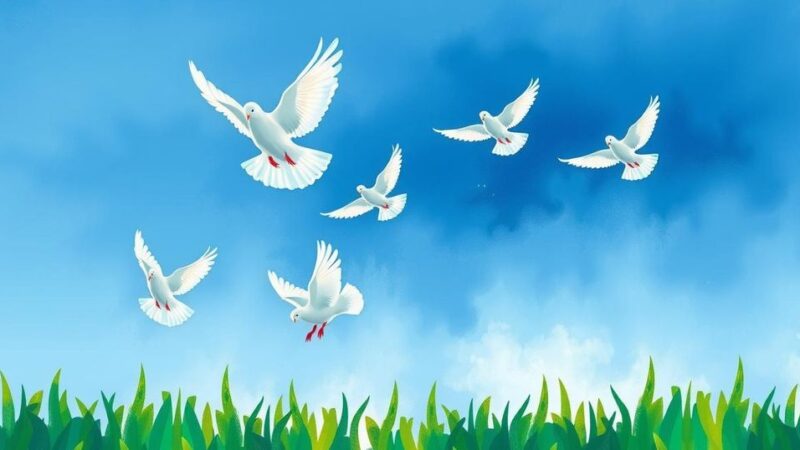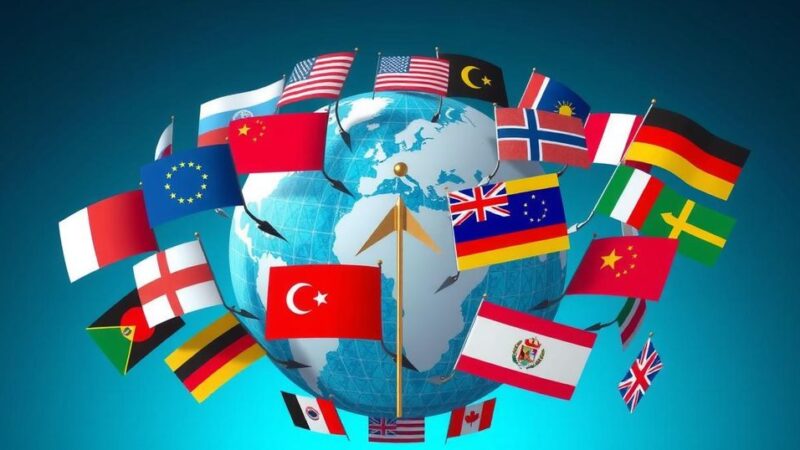The article discusses South Africa’s historical land inequality rooted in apartheid policies, where Black individuals currently own only 4% of private land. President Ramaphosa’s recent expropriation act aims to address this issue, allowing for land redistribution. Controversy ensues as figures like Trump and Musk allege discrimination against White farmers, despite government assertions of balanced intentions. Global implications of U.S. aid cuts due to these tensions are highlighted, reflecting broader societal challenges.
South Africa faces a significant land inequality issue, rooted in its apartheid history, which enforced discriminatory policies favoring White land ownership. A pivotal 1913 act allowed only 7% of land ownership for Black South Africans, a figure later raised to 13%. Despite comprising 81% of the population—approximately 63 million—Black individuals reportedly hold only 4% of private land, as revealed by a 2017 government audit.
To address this enduring imbalance, President Cyril Ramaphosa recently signed an expropriation act aimed at redistributing land. The law permits government expropriation without compensation under specific equitable conditions, though it has not yet seen any land seizures. Supporters assert that this legislation is vital for rectifying historic land injustices and underline that it must serve the public interest without arbitrary discrimination.
This new law has intensified existing racial tensions, drawing criticism from international figures like President Donald Trump and businessman Elon Musk, who allege biases against White farmers. Musk has labeled the government’s ownership laws as overtly racist, a stance that has drawn rebuke from some White South Africans who argue that such claims misrepresent current societal inequalities.
Bloomington resident David Van Wyk articulated his dissatisfaction with Musk’s comments, asserting they promote a false narrative of victimhood for White citizens. He emphasized that the economic disparities in South Africa reveal that White incomes are substantially higher than those of the Black majority, stating, “For Trump to create the impression that White people in South Africa are victims is nonsense.”
While activists like Henk Smith suggest that the expropriation law may be poorly implemented, calling for fair compensation, the South African government refutes claims of widespread land seizures. Trump’s recent executive order cutting $440 million in U.S. aid to South Africa, citing alleged violence against racially marginalized landowners, further complicates the situation and raises concerns about the potential loss of trade advantages under the African Growth and Opportunities Act (AGOA).
Concerns have also emerged regarding the accuracy of information circulated about the land law. Officials from South Africa’s Department of International Affairs characterized such narratives as misrepresentations contributing to unwarranted fears among White citizens. AgriSA, a farmers’ trade organization, echoed these sentiments, labeling misinformation as damaging and asserting that no land has been illegally expropriated.
Furthermore, organizations like the Solidarity Movement, while condemning certain governmental policies, clarified that they do not endorse exaggerated claims of widespread land grabs, emphasizing their commitment to address grievances through accurate representation. Despite ongoing debates concerning the treatment of various societal sectors, studies indicate that South Africa’s murder rates reflect a broader national concern rather than being focused solely on agriculture-related violence.
In summary, South Africa confronts a profound legacy of land inequality stemming from apartheid, with current legislative efforts aimed at rectifying these historical injustices. While international figures have invoked criticisms regarding the government’s intentions, officials assert that no unconstitutional seizures have occurred. The discourse surrounding the land issue continues to reflect the complexities and sensitivities tied to race and economics in contemporary South Africa.
Original Source: edition.cnn.com






